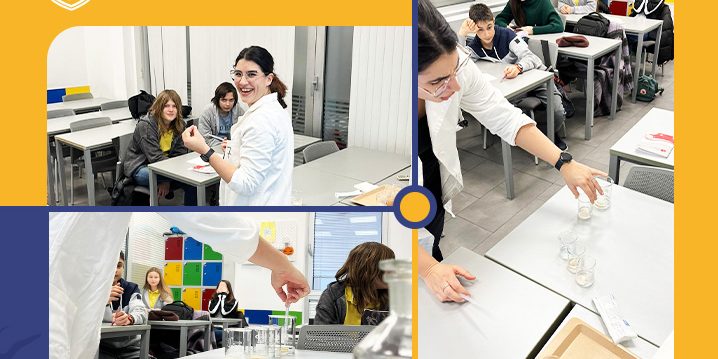In a recent Biology class for Year 9 students, the focus was on understanding the influence of climate change on the pH levels (acidity) of water and its consequential effects on marine life. The teacher, together with the students, conducted an experiment that simulated environmental conditions, allowing them to witness the direct impact of water acidification on aquatic ecosystems and the inanimate environment, specifically rocks.
 This experiment gave students important practical experience
This experiment gave students important practical experience
The experiment involved the use of various acid concentrations, including vinegar, shells, limestone rocks, and an egg. The objective was to demonstrate how increased acidity leads to the breakdown of calcium carbonate in the shells of mollusks. Additionally, the students observed the effects on limestone rocks, showing the impact of water acidification on non-living components of the environment.
The inclusion of an egg in the experiment was particularly insightful, as it illustrated the influence of acidity on the eggshell, showing its dissolution similar to the shells of mollusks. This experiment gave students important practical experience and improved their understanding of how climate change affects water environments.
The students found this experiment to be an enjoyable and engaging experience. This practical activity not only deepened their understanding of scientific concepts but also made learning about the impact of climate change a fun and memorable experience.



